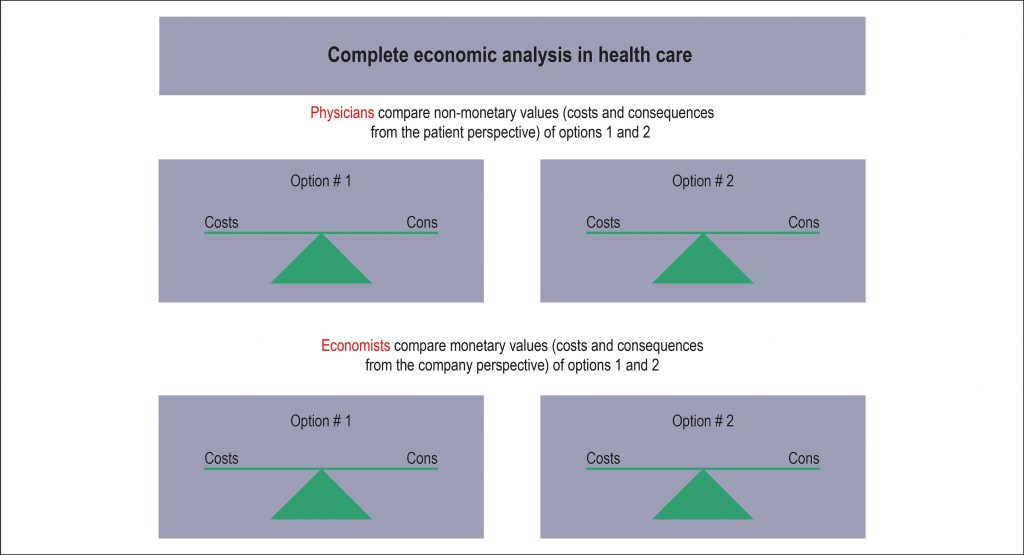Arq. Bras. Cardiol. 2017; 108(6): 488-490
The Concept of Clinical Economics and its Relation with Effectiveness
DOI: 10.5935/abc.20170084
Efficacy versus Effectiveness
We underlined that efficacy and effectiveness describe two different types of information: efficacy is the demonstration that a new principle can theoretically work, which comes from studies under ideal controlled conditions; effectiveness is how the concept proven by efficacy studies works under real world conditions (RWC)., For demonstration of efficacy, one should select the optimal scenario for the proof of principle. It requires an experimental study design, with random allocation of treatments, to eliminate confounding bias and proper assessment of causality, it means the trial is explanatory.
The demonstration of effectiveness is pragmatic and takes place in the scenario in which the new principle will be used (RWC). The design is observational and treatment allocation is under the discretion and preferences of physician and patient. It allows assessment of the two main determinants of effectiveness: practical issues regarding adequate applicability of treatment and the impact of individualized choices. The interaction of these two forces determines whether the effectiveness of a treatment will be smaller than its proven efficacy (loss of beneficial effect in the real world) or whether the treatment will be even more effective than efficacious. The first situation should be a concern when logistic issues impair the treatment to be ideally applied (a not well trained doctor, a patient not educated enough to properly take an anticoagulant, a system not able to provide adequate door-to-balloon time in primary angioplasty for acute myocardial infarction), what tends to happen when the treatment is somewhat complex. The second situation takes place when physicians and patients provide a better solution than a simple randomization can do allocation.
[…]
435

